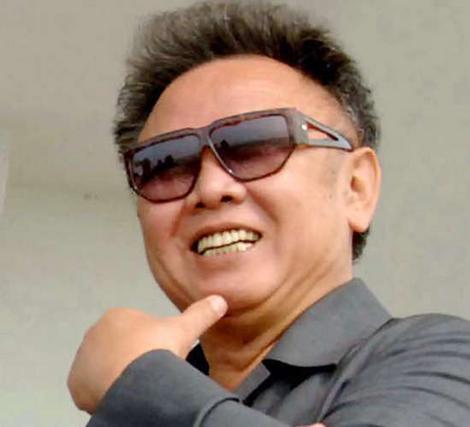
The pin-pricks, as Brent Scowcroft calls them, have started. North Korea is testing Obama’s resolve and strategic skills.
North Korea’s ballistic missile test masked as a satellite launch violates agreements that the United States, Russia, China, South Korea, and Japan negotiated with North Korea in order to bring it back into compliance with the nuclear non-proliferation treaty.
Set aside for the moment that despite the missile succeeding in covering more than 1,900 miles — doubling the distances achieved by earlier North Korea tests — the North Koreans failed to put anything into orbit, though state news agencies are reporting the satellite launch to be a success.
My friend Jeffrey Lewis who blogs at Arms Control Wonk wondered out loud on his facebook profile “What happens to North Korean rocket scientists after failed launches?” I wonder if these scientists are really in any jeopardy for failing when the State is calling their work a major success.
But Barack Obama in a well-crafted speech in Prague calling for a return to serious work on constraining the spread of weapons of mass destruction has ratcheted up the decibel level of his protest of the North Korea launch — saying that there must be consequences.
The problem is that China and Russia, which actually deployed warships and fighters to the region of the launch, believe that the world must not overreact to North Korea’s provocation. These two countries have thus far blocked the issuance of any statement from the United Nations Security Council, which met last evening (Sunday) for an emergency session.
North Korea seems to be demanding that it not fall too far down the Obama priority list — and it has engineered one of the first of many probable global crises designed to test the resolve and strategic course of the Obama administration. Joe Biden warned during the campaign that this would happen, and he was absolutely right.
North Korea is already the target of some of the world’s most stringent sanctions. And maintaining them — and even adding some categories of sanctions — does send a signal, but it is a soft one that the North Koreans may not care about or respect.
If this provocation was designed primarily “to get attention,” then the Obama administration should be asking what can be done to give North Korea “more” attention. Attention itself is not a strategic commodity — or something that a great nation should withhold if there is a chance of securing strategically significant successes over the ability of North Korea to further enhance its nuclear weapon systems capacity.
Giving North Korea more attention will be pilloried as appeasement by voices such as John Bolton and Frank Gaffney who think that there is little else but expedited regime change and military collision that will change North Korea’s course.
But what I have learned watching North Korea’s engagement with the US over the years is that North Korea does not move behaviorally in straight lines. But after all is said and done, when one looks back, one sees that North Korea is moving generally in a direction that the West may eventually be able to accept.
North Korea may be a rogue state — but it is not the kind of transnational, undeterrable threat that al Qaeda represents. North Korea’s leadership is a shrewdly self-interested, rational, calculating tyranny and as awful as dealing with such regimes may be — there are many options that can move the regime that are short of war.
Thus, in my view, Obama should not put himself into a box when it comes to a tough-edged response to North Korea. Give North Korea the attention it craves — and set up benchmarks for behavior.
And some of Obama’s responses may indeed have to be harder edged — but we need to be sure that the US isn’t giving the most thuggish part of North Korea’s leadership structure the excuses needed to undermine progressive movement inside the country.
At the same time, we simply need more alternatives and allies — and the best I can think of is to work with Japan, South Korea, and China in not calling for withdrawing engagement and toughening sanctions but rather crafting how to strategically enhance engagement with particular forces inside North Korea that we want to cultivate.
It’s time for a Nixonian approach that would enrich some of North Korea’s potential robber barons against the interests of others inside the regime. We need to try to unleash opportunities for some and not others. This is risky and could itself be destabilizing — but we need a strategic course that ultimately improves the leverage of other of North Korea’s neighbors over its conduct.
Bluster will not work and is not respected. Force actually is respected by the North Koreans but can easily escalate beyond control.
North Korea is not monolithic. It would be prudent to try to generate some leverage on the competing factions around Kim Jong Il.
But hitting North Korea hard now may undermine any chance of teasing out these factions and of generating other more promising scenarios. At the minimum, if this was all about “attention” — then that is something America can give at low cost.
If North Korea doesn’t get off this new provocative course, then we have to consider some options that change the game.
— Steve Clemons


11 comments on “Obama Needs to be Nuanced in North Korea Response”